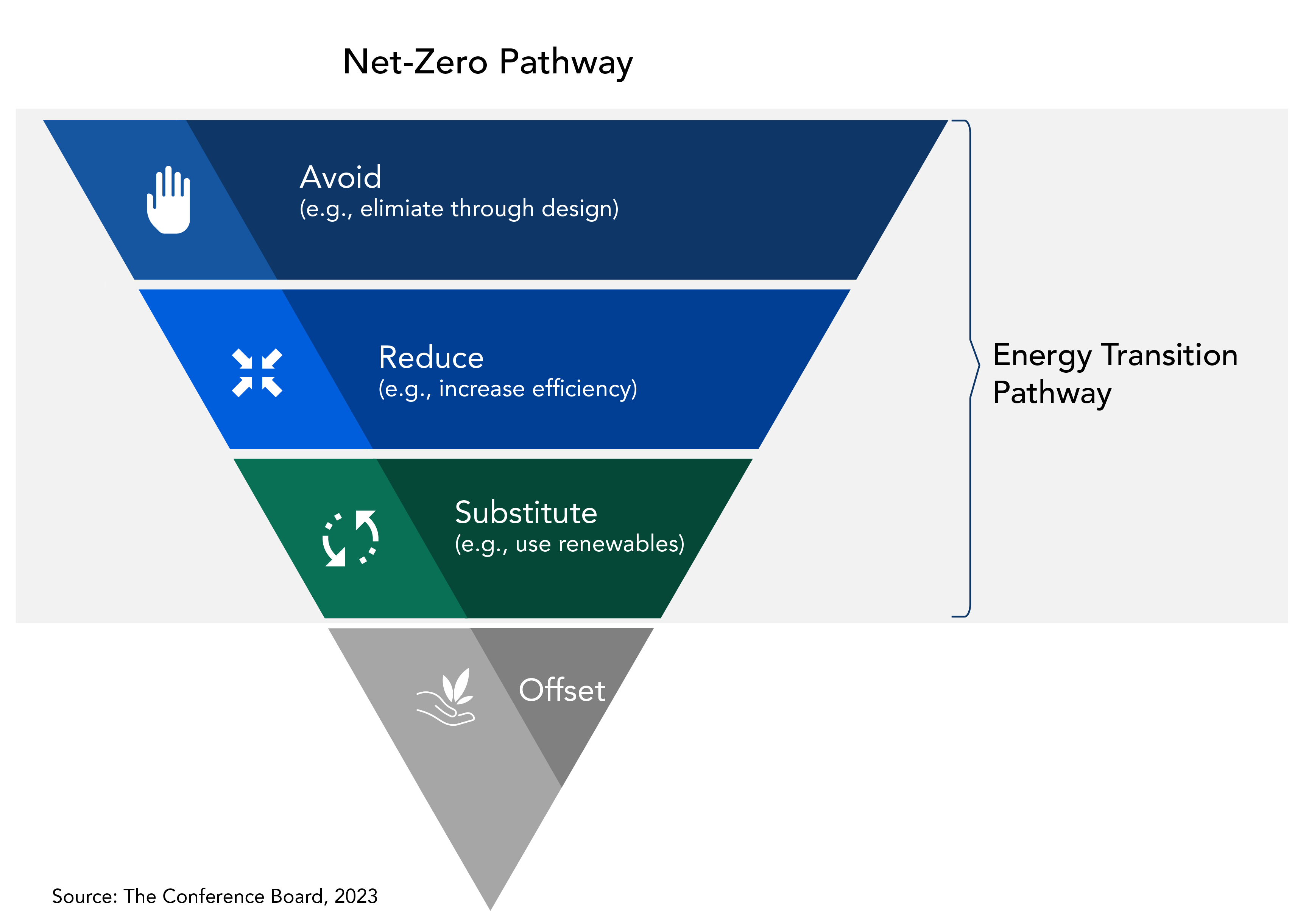
The global economy is on a downward trend, with regional recessions highly likely in the US and Europe. Despite many similarities, no two recessions have been identical. However, in each recession, energy issues have been a key component either as a causing force or as a resulting effect.
Energy price volatility is a rising concern for CEOs, especially in Europe and Japan, where energy and fuel prices catapulted to new highs in 2022, according to The Conference Board C-Suite Outlook™ 2023. To navigate successfully through an economic slowdown, decoupling growth from energy consumption, using the following strategies, should be a long-term goal for businesses.
Gaining independence from fossil fuel energy sources is gaining momentum driven by stakeholder concerns and regulation. Despite their concerns about high transition costs, almost half of CEOs globally (49 percent) and 59 percent of C-suite executives say the transition to renewable energy will be significantly positive for their organizations. Businesses need to develop a long-term vision for energy saving projects that substitute fossil-fueled energy sources with clean ones. Renewable energy technologies are becoming cost competitive, and can offer energy security and long-term stability of operating costs.
Even as dependence on fossil fuels is increasing in many countries and regions, including persistent use of coal, energy (from usage to sourcing to security) is the top environmentally related ESG priority for CEOs globally.
Avoid, reduce, and substitute. These three principles should be the ones followed by businesses in their energy transition strategy. This hierarchy is compatible with Net-Zero pathways that businesses should follow for fighting climate change. In our recent Net-Zero pathway chart, businesses can find the hierarchy of actions to mitigate carbon emissions that can also be applied to energy transition: Avoid, Reduce, and Substitute. Avoiding and reducing energy consumption can be achieved through technological innovations, product design or business model innovation, such as industrial symbiosis—the process by which wastes or by-products of an industry or industrial process become the raw materials for another. In the industrial sector using current technologies, especially decarbonization of iron and steel manufacturing, chemicals, refining and cement industries the technical potential for estimated additional savings in 2050 is between 15-25%.

Businesses are initially reluctant to foray into energy efficiency projects since they typically require considerable upfront capital and have relatively long payback periods. However, from a sustainability perspective, businesses need to adopt a long-term vision for energy saving projects to diminish energy as a cost factor in the long term and accept longer payback periods in their investment portfolio.
Dependency on oil and natural gas can undermine economic growth and long-term prosperity. Global oil and natural gas price spikes result in turmoil in energy markets. Such shocks can drive domestic inflation, which can lead to a spiral of increasing prices. Energy market turmoil occurs mainly because oil and natural gas still account for more than 50% of global primary energy supply. Clean energy transition of fossil-fuel intensive sectors would be turbulent in the short-term, but could improve price stability and reduce total energy prices in the long run.
Research has shown that fossil fuels are damaging to the environment and are now subject to carbon taxes in many jurisdictions around the globe. Advances in environmental legislation, new corporate reporting standards, new carbon tax forms such as the EU Carbon Border Adjustment Mechanism (CBAM), and their adoption in more jurisdictions will make the use of fossil fuels in the value chain increasingly unviable and cumbersome.
Fossil fuel dependency undermines energy security, as they can be used as a tool of foreign policy. 80% of the world's proven oil reserves are located in 15 countries while 73% of natural gas is produced by 10 countries. In contrast, almost every country in the world has wind, water, and solar energy potential, enough to cover all domestic energy needs after electrification of all sectors.
Businesses, by following the Avoid, Reduce, and Substitute principles, can lead the energy transition toward a cleaner energy mix that will offer them protection from energy price shocks and higher energy security in the long term.
